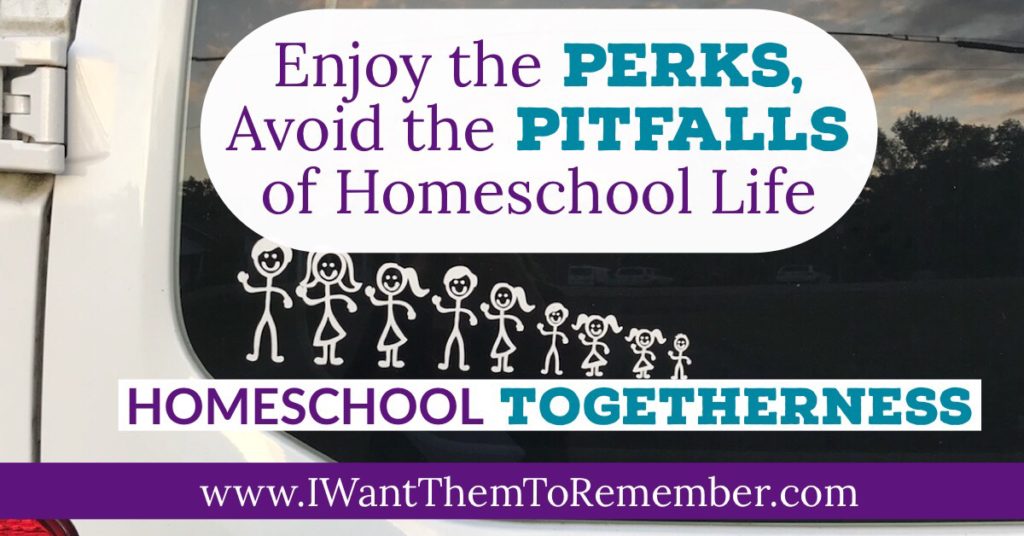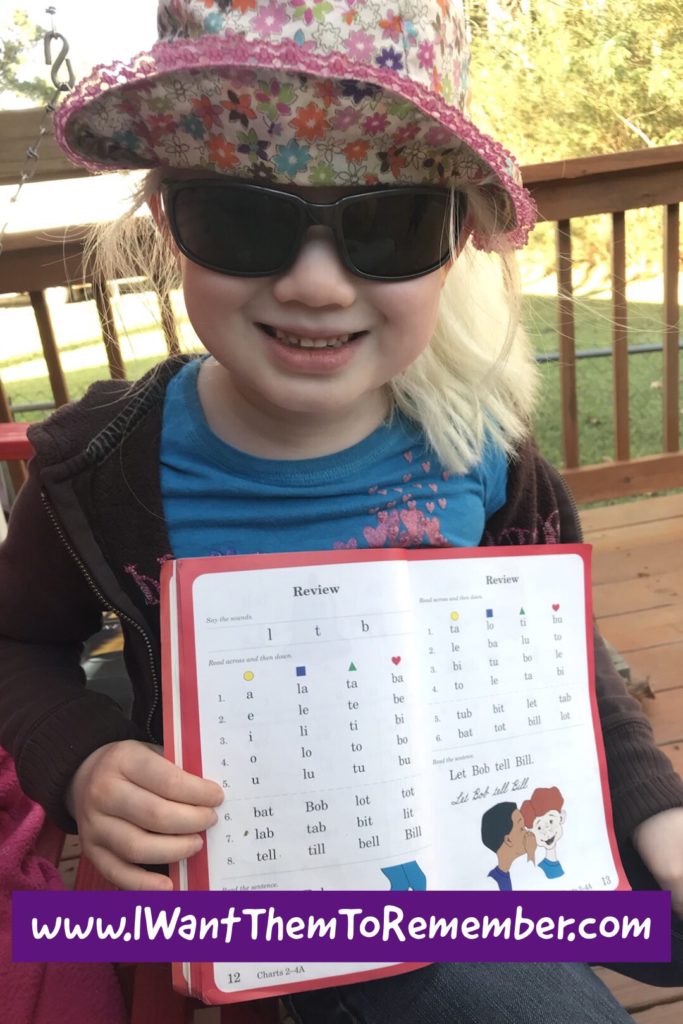This post contains affiliate links by which I may earn a commission to support this ministry and my family at no extra cost to you. Disclosure
Homeschooling has many perks that our family enjoys. One of my favorite perks of homeschool life is a flexible schedule, but even at the very beginning one of our reasons for choosing to homeschool our children was to be together. When my oldest turned five, I could not imagine sending her off to school all day. In the second post of this series of Perks & Pitfalls of Homeschool Life, I’ll share how we enjoy the perk of homeschool togetherness and try to avoid the pitfalls that naturally come with so much togetherness.

Perks of Homeschool Togetherness
Most families spend eight plus hours away from each other everyday, but as a homeschooling family, we spend most of those hours together. My husband is a pastor and is in and out, but his schedule is somewhat flexible with the exception of some meeting, surgeries, etc. We really get to know each other: our strengths and weaknesses, our gifts and challenges, our little quirks and unique personalities.

Reading her first sentence
We get to experience the light bulb moments when our kids finally “get it.” Teaching my children to read has been such a challenge, but it is so exciting to see when they finally get it, and even begin trying to read random things on their own.
Yesterday, my six-year-old picked up an advertisement with the word Saturday and read sat. “Mama, sat,” she said proudly. “Whats sat mean?” she asked with her quizzical wrinkled eyebrows. (This is her favorite question about any word even if she knows the answer.) She has known English for less than 2 years and is overcoming so many challenges.
My teenage son, who made it through the challenge of Algebra last year, now thinks it’s not so hard when he reviews the concepts that gave him trouble when they were new.
When we read aloud together after breakfast all ages, well except for maybe a couple of the youngest, beg for another chapter. We plunge together into imaginary worlds in Green Ember or live alongside of missionaries such as David Livingstone in Africa. Things in life can remind us of a favorite scene or quote we read together and spark laughter or thoughtfulness.
(Have you tried reading out loud with your family– it’s not just for homeschoolers! Check out Sarah McKenzie’s The Read Aloud Family for suggestions. Audiobooks wonderful for travel or doing chores while you listen.)
We experience new places and learn through field trips together. Often they are with a group of other homeschoolers, but sometimes it is just our family. We’ve created lifelong memories in everyday moments at zoos, parks, museums, televisions stations, farms, and so much more!
But, we are together ALL THE TIME.
Togetherness easily becomes a pitfall. One of the often touted benefits of homeschooling is close family relationships. Instead, more time together can lead to more conflicts, with more reason and opportunity to disagree, argue, and fight.
Honestly, I am still trying to get out of that pitfall. Sometimes, I think we are stuck in a never ending cycle of sibling bickering, then suddenly, my kids will decide to get along. The difference in my own stress level and emotions by the end of the day is so dramatically different after a relatively peaceful (not perfect) day.
It may be impossible to completely avoid this pitfall if you have several strong personalities in your family, but some little things can at least help you (and us) not to dig so deep into the pit!
How to Avoid the Pitfalls of Homeschool Togetherness
1. Give siblings the opportunity to take time away from each other. Intentionally, plan time for your children, especially older ones, with their friends, grandparents, or cousins without siblings or even you.
2. Do Bible studies and read books together about resolving conflict, managing anger, and building strong family relationships. Though not a magic bullet for sure, these have been helpful for us. Good and Angry, Making Brothers and Sisters Best Friends, and My Brother’s Keeper.

3. Help your children learn to overlook small offenses (and set the example yourself). Most of the arguments in our house are over very insignificant things. Remember, love covers a multitude of sins.
4. Forgive and start again. At the root of many petty arguments is unforgiveness for past hurts. When bitterness builds up, the smallest word can set off a torrent of anger, even rage. Talk through problems. Sometimes you may need to wait until the “heat of the moment” has passed and emotions have cooled down first. Remember, love keeps no record of wrongs.
5. Think before you speak. Just changing the tone of voice can diffuse a potential blow up. How we say something is as important as what we say. Remember, a soft answer turns away wrath.
6. Apologize, apologize, apologize. Even the best of parents make mistakes and the sweetest, most compliant kids have bad days. We all need the grace of Jesus. Set the example and teach your children to apologize. Also, don’t forget the response to the apology must be full of grace as well.
Even the best of parents make mistakes and the sweetest, most compliant kids have bad days. We all need the grace of Jesus.Click To TweetI try to remind my children that God is using our family to help us grow in Christlikeness in a place where we are loved. If we cannot learn to get along, put others first, and overlook offense at home, how will we live for Christ in a world that is often truly against us? I want them to remember we are practicing at home for the times God will use us in the world.
You can enjoy the perk of homeschool togetherness and at least minimize (if not avoid) the pitfalls. If God’s calls you to teach your children at home, don’t give up! He is using homeschooling to reveal and polish my many character flaws, and I trust He is working in my children as well.
Do you have any tips for handling the hours of togetherness that come with homeschooling? I’d love to hear your suggestions. Please leave a comment.
More in this series: Homeschool Community, A Flexible Homeschool Schedule.
I try to remind my children that God is using our family to help us grow in Christlikeness in a place where we are loved. If we cannot learn to get along, put others first, and overlook offense at home, how will we live for Christ in a world that is often truly against us? I want them to remember we are practicing at home for the times God will use us in the world.Click To Tweet













